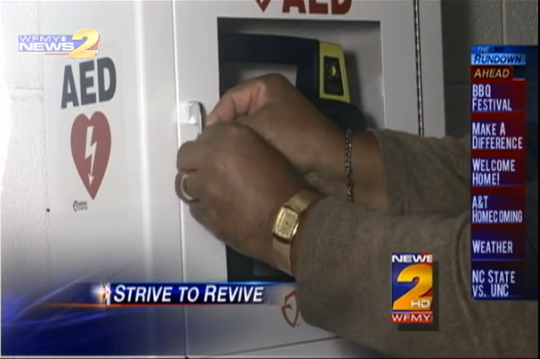By Morgan Hightower, WFMY News 2HD
Ramsuer, NC – What if your chances of surviving a heart attack, or sudden cardiac arrest, depended on the neighborhood you lived in?
According to a new study, it just may.
The New England Journal of Medicine suggests CPR by a bystander is less likely in low-income areas. They go on to say there is a direct relationship between household income and the racial makeup of a neighborhood.
They say the odds of having a bystander perform CPR were 50-percent higher in a high-income non-black neighborhood than in a low-income black neighborhood.
Their research also showed race played a role on the chances of receiving CPR, outside the neighborhood.
People living in an affluent black neighborhood were 23-percent less likely to receive CPR than those living in a non-black neighborhood of the same status.
Those researchers pulled information from 29 cities but it’s not news to a group called Strive to Revive.
They’ve been teaching CPR in lower income communities since 2010 they’ve supplied AEDs, or automated external defibrillators, to hundreds of churches and certified more people across the state.
“To me it would be a good impact knowing that if we have one on hand, and something happens to you, you don’t have to wait 10 to 15 minutes for the emergency people to show up and have someone on hand who can administer first aid with the AED and possibility of saving your life,” said Elsworth Cheek, Strive to Revive participant.
“I think it’s wonderful, it’s a very good opportunity for the churches and it’s going to make a difference, it will truly make a difference, it’s a matter of life and death,” said Elsworth’s wife, Mary.
One of the reasons the NEJM study believes CPR education is lacking in certain areas is because it’s expensive but Strive to Revive is a grant program. That means churches like this one the Cheeks attend can have members trained and get an AED for free.
Strive to Revive’s goal was to serve 150 churches over the next three years but they’ve already passed that.
Organizers say this program is important because 45,000 people are victims of cardiac arrest each year but with this education, hopefully more people will survive — no matter where they live.

